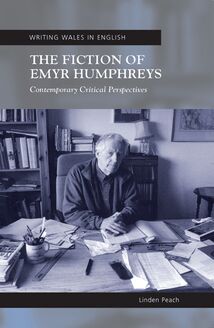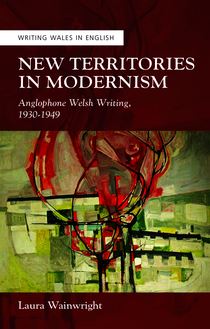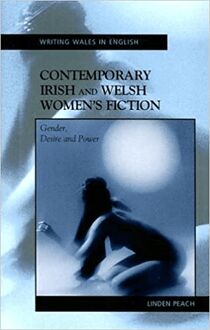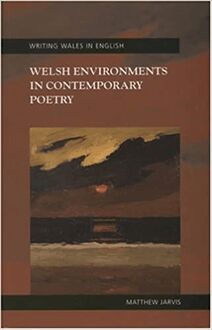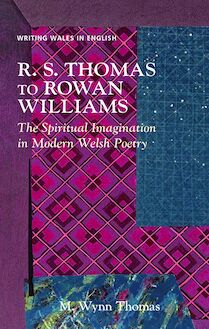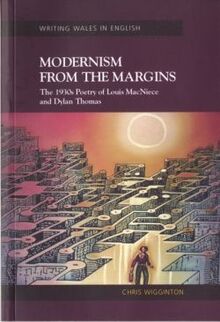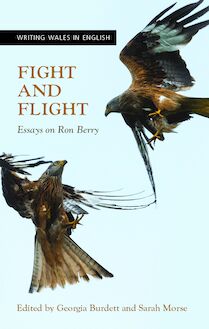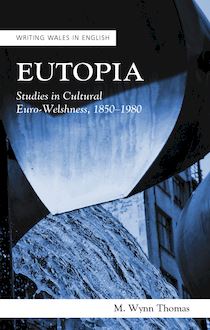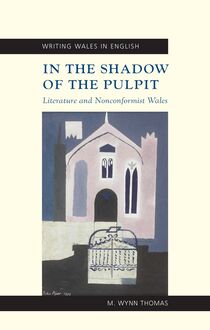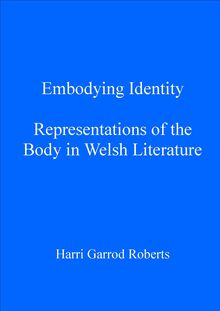-
 Univers
Univers
-
 Ebooks
Ebooks
-
 Livres audio
Livres audio
-
 Presse
Presse
-
 Podcasts
Podcasts
-
 BD
BD
-
 Documents
Documents
-
- Cours
- Révisions
- Ressources pédagogiques
- Sciences de l’éducation
- Manuels scolaires
- Langues
- Travaux de classe
- Annales de BEP
- Etudes supérieures
- Maternelle et primaire
- Fiches de lecture
- Orientation scolaire
- Méthodologie
- Corrigés de devoir
- Annales d’examens et concours
- Annales du bac
- Annales du brevet
- Rapports de stage
La lecture à portée de main
Vous pourrez modifier la taille du texte de cet ouvrage
Découvre YouScribe en t'inscrivant gratuitement
Je m'inscrisDécouvre YouScribe en t'inscrivant gratuitement
Je m'inscrisEn savoir plus
Vous pourrez modifier la taille du texte de cet ouvrage
En savoir plus

Description
Until very recently, Welsh literary Modernism has been critically neglected, both within and outside Wales. This is the first book devoted solely to the study of Welsh literary Modernism, revealing and examining eight key Anglophone Welsh writers. Laura Wainwright demonstrates how their linguistic experimentation constituted an engagement with the unprecedented linguistic, social and cultural changes that were the making of modern Wales, and formed the crucible for the emergence of a distinct Welsh Modernism. This study of Welsh Modernism challenges conventional literary histories and, in more than one sense, takes Modernism and Modernist studies into new territories.
General Editor’s Preface
Acknowledgements
Introduction
1 ‘The dissolving and splitting of solid things’: Welsh Modernism’s ‘crisis of language’
2 ‘Always observant and slightly obscure’: Lynette Roberts as Welsh Modernist
3 Vernon Watkins’s ‘modern country of the arts’
4 Cadaqués and Carmarthenshire: the Modernist ‘heterotopias’ of Salvador Dalí and Dylan Thomas
5 ‘Hellish funny’: The grotesque Modernism of Gwyn Thomas and Rhys Davies
Conclusion
Notes
Bibliography
Index
Sujets
Informations
| Publié par | University of Wales Press |
| Date de parution | 15 mars 2018 |
| Nombre de lectures | 0 |
| EAN13 | 9781786832191 |
| Langue | English |
| Poids de l'ouvrage | 2 Mo |
Informations légales : prix de location à la page 0,0824€. Cette information est donnée uniquement à titre indicatif conformément à la législation en vigueur.
Extrait
New Territories in Modernism
WRITING WALES IN ENGLISH
CREW series of Critical and Scholarly Studies
General Editors: Kirsti Bohata and Daniel G. Williams ( CREW , Swansea University)
This CREW series is dedicated to Emyr Humphreys, a major figure in the literary culture of modern Wales, a founding patron of the Centre for Research into the English Literature and Language of Wales . Grateful thanks are due to the late Richard Dynevor for making this series possible.
Other titles in the series
Stephen Knight, A Hundred Years of Fiction (978-0-7083-1846-1)
Barbara Prys-Williams, Twentieth-Century Autobiography (978-0-7083-1891-1)
Kirsti Bohata, Postcolonialism Revisited (978-0-7083-1892-8)
Chris Wigginton, Modernism from the Margins (978-0-7083-1927-7)
Linden Peach, Contemporary Irish and Welsh Women s Fiction (978-0-7083-1998-7)
Sarah Prescott, Eighteenth-Century Writing from Wales: Bards and Britons (978-0-7083-2053-2)
Hywel Dix, After Raymond Williams: Cultural Materialism and the Break-Up of Britain (978-0-7083-2153-9)
Matthew Jarvis, Welsh Environments in Contemporary Welsh Poetry (978-0-7083-2152-2)
Harri Garrod Roberts, Embodying Identity: Representations of the Body in Welsh Literature (978-0-7083-2169-0)
Diane Green, Emyr Humphreys: A Postcolonial Novelist (978-0-7083-2217-8)
M. Wynn Thomas, In the Shadow of the Pulpit: Literature and Nonconformist Wales (978-0-7083-2225-3)
Linden Peach, The Fiction of Emyr Humphreys: Contemporary Critical Perspectives (978-0-7083-2216-1)
Daniel Westover, R. S. Thomas: A Stylistic Biography (978-0-7083-2413-4)
Jasmine Donahaye, Whose People? Wales, Israel, Palestine (978-0-7083-2483-7)
Judy Kendall, Edward Thomas: The Origins of His Poetry (978-0-7083-2403-5)
Damian Walford Davies, Cartographies of Culture: New Geographies of Welsh Writing in English (978-0-7083-2476-9)
Daniel G. Williams, Black Skin, Blue Books: African Americans and Wales 1845-1945 (978-0-7083-1987-1)
Andrew Webb, Edward Thomas and World Literary Studies: Wales, Anglocentrism and English Literature (978-0-7083-2622-0)
Alyce von Rothkirch, J. O. Francis, realist drama and ethics: Culture, place and nation (978-1-7831-6070-9)
Rhian Barfoot, Liberating Dylan Thomas: Rescuing a Poet from Psycho-Sexual Servitude (978-1-7831-6184-3)
Daniel G. Williams, Wales Unchained: Literature, Politics and Identity in the American Century (978-1-7831-6212-3)
M. Wynn Thomas, The Nations of Wales 1890-1914 (978-1-78316-837-8)
Richard McLauchlan, Saturday s Silence: R. S. Thomas and Paschal Reading (978-1-7831-6920-7)
Bethan M. Jenkins, Between Wales and England: Anglophone Welsh Writing of the Eighteenth Century (978-1-7868-3029-6)
M. Wynn Thomas, All that is Wales: The Collected Essays of M. Wynn Thomas (978-1-7868-3088-3)
New Territories in Modernism
Anglophone Welsh Writing, 1930-1949
WRITING WALES IN ENGLISH
Laura Wainwright -->
UNIVERSITY OF WALES PRESS 2018
© Laura Wainwright, 2018
All rights reserved. No part of this book may be reproduced in any material form (including photocopying or storing it in any medium by electronic means and whether or not transiently or incidentally to some other use of this publication) without the written permission of the copyright owner. Applications for the copyright owner s written permission to reproduce any part of this publication should be addressed to the University of Wales Press, 10 Columbus Walk, Brigantine Place, Cardiff CF10 4UP.
www.uwp.co.uk
British Library CIP Data
A catalogue record for this book is available from the British Library.
ISBN: 978-1-78683-217-7
e-ISBN: 978-1-78683-219-1
The University of Wales Press acknowledges the financial support of the Welsh Books Council.
The right of Laura Wainwright to be identified as author of this work has been asserted in accordance with sections 77 and 79 of the Copyright, Designs and Patents Act 1988.
The publisher has no responsibility for the persistence or accuracy of URLs for any external or third-party internet websites referred to in this book, and does not guarantee that any content on such websites is, or will remain, accurate or appropriate.
Cover image: Robert Alwyn Hughes, Rhymney (1958), oil on canvas. By permission
For Arthur Celyn and Louie Heulyn
Contents
Series Editors Preface
Acknowledgements
Introduction
1 The dissolving and splitting of solid things : Welsh Modernism s crisis of language
2 Always observant and slightly obscure : Lynette Roberts as Welsh Modernist
3 Vernon Watkins s Modern Country of the Arts
4 Cadaqués and Carmarthenshire: The Modernist Heterotopias of Salvador Dalí and Dylan Thomas
5 Hellish Funny : The Grotesque Modernism of Gwyn Thomas and Rhys Davies
Conclusion
Notes
Bibliography
Series Editors Preface
The aim of this series, since its founding in 2004 by Professor M. Wynn Thomas, is to publish scholarly and critical work by established specialists and younger scholars that reflects the richness and variety of the English-language literature of modern Wales. The studies published so far have amply demonstrated that concepts, models and discourses current in the best contemporary studies can illuminate aspects of Welsh culture, and have also foregrounded the potential of the Welsh example to draw attention to themes that are often neglected or marginalised in anglophone cultural studies. The series defines and explores that which distinguishes Wales s anglophone literature, challenges critics to develop methods and approaches adequate to the task of interpreting Welsh culture, and invites its readers to locate the process of writing Wales in English within comparative and transnational contexts.
Professor Kirsti Bohata and Professor Daniel G. Williams
Founding Editor: Professor M. Wynn Thomas (2004-15)
CREW ( Centre for Research into the English Literature and Language of Wales ) Swansea University
Acknowledgements
For kind permission to include extracts from works I should like to thank the following: Gomer Press for Idris Davies s Gwalia Deserta ; the Rhys Davies Trust for Rhys Davies s Arfon ; Literature Wales for Man and Sande by Glyn Jones; Maria Delgado for her translations of Valle-Inclán s Bohemian Lights ; Angharard Rhys and Prydein Rhys for Lynette Roberts s Poem from Llanybri , Royal Mail , Crossed and Uncrossed , Seagulls , Plasnewydd and Curlew ; David Higham Associates and New Directions Publishing Corporation for Dylan Thomas s I see the boys of Summer , The force that through the green fuse , A process in the weather of the heart , The Peaches , The Enemies , The Map of Love , A Prospect of the Sea ; David McDuff for his translation of Georg Trakl s Night ; and Gwendoline Mary Watkins for Vernon Watkins s Discoveries , The Collier and Ophelia . Despite my best efforts, I have been unable to trace the copyright holder for Patrick Bridgewater s translation of Guard Duty by August Stramm. I apologise for this omission and encourage the copyright holder to contact me.
Thank you to my Mum and Dad for introducing me to the pleasures of literature, art and creativity. I also owe a debt of gratitude to Professor Katie Gramich, who supervised the Ph.D. thesis on which this book is based, and to Professor Daniel G. Williams for drawing my attention to Chana Kronfeld s On the Margins of Modernism: Decentering Literary Dynamics . I gratefully acknowledge the financial contribution of the Welsh Books Council in the publication of my work.
Finally, my love and thanks go to Darrell Thomas. This would all have been impossible without you.
Introduction
On 17 March 1987, Raymond Williams presented a lecture as part of a series convened by the University of Bristol. The lecture was called When Was Modernism? - a title that Williams borrowed from a book by [his] friend Professor Gwyn Williams: When Was Wales? 1 - and posited the following argument:
After Modernism is canonized... by the post-war settlement and its accompanying, complicit academic endorsements, there is then the presumption that since Modernism is here in this specific phase or period, there is nothing beyond it... Modernism is confined to this highly selective field and denied to everything else in an act of pure ideology, whose first, unconscious irony is that, absurdly, it stops history dead. Modernism being the terminus, everything afterwards is counted out of development. It is after ; stuck in the post. 2
Nowhere is the exclusionary force of conventional histories of Modernism more palpable than in the country of Raymond Williams s birth and the subject of Professor Gwyn Williams s book: Wales. With the exception of Saunders Lewis in the Welsh language, and Dylan Thomas, Caradoc Evans, 3 and David Jones (whose work is most often studied in the context of English or British Modernism) in English, Wales s writers have, historically, been debarred from scholarly discussions of literary Modernism. In the case of Welsh writing in English, a minority of scholars have addressed the prospect of a Welsh Modernism as part of more discursive studies of the literature of Wales - notably M. Wynn Thomas in Internal Difference: Twentieth-Century Writing in Wales (1992), Corresponding Cultures: The Two Literatures of Wales (1999) and In the Shadow of the Pulpit: Literature and Nonconformist Wales (2010); and Tony Conran in Frontiers in Anglo-Welsh Poetry (1997). In Modernism from the Margins: The 1930s Poetry of Louis MacNeice and Dylan Thomas (2007), Christopher Wigginton stresses that Welsh Modernism continues to be neglected, even within Wales ; 4 and yet he limits the scope of his critical inquiry to Dylan Thomas, only mentioning other potentially Modernist Welsh writers in passing. The same can be said of John Goodby s Under the Spelling Wall: The Poetry of Dylan Thomas (2013). And although, more recently, Goodby and Wigginton have widened the scope of their inquiry, in their collaborative essay, Welsh Modern
-
 Univers
Univers
-
 Ebooks
Ebooks
-
 Livres audio
Livres audio
-
 Presse
Presse
-
 Podcasts
Podcasts
-
 BD
BD
-
 Documents
Documents
-
Jeunesse
-
Littérature
-
Ressources professionnelles
-
Santé et bien-être
-
Savoirs
-
Education
-
Loisirs et hobbies
-
Art, musique et cinéma
-
Actualité et débat de société
-
Jeunesse
-
Littérature
-
Ressources professionnelles
-
Santé et bien-être
-
Savoirs
-
Education
-
Loisirs et hobbies
-
Art, musique et cinéma
-
Actualité et débat de société
-
Actualités
-
Lifestyle
-
Presse jeunesse
-
Presse professionnelle
-
Pratique
-
Presse sportive
-
Presse internationale
-
Culture & Médias
-
Action et Aventures
-
Science-fiction et Fantasy
-
Société
-
Jeunesse
-
Littérature
-
Ressources professionnelles
-
Santé et bien-être
-
Savoirs
-
Education
-
Loisirs et hobbies
-
Art, musique et cinéma
-
Actualité et débat de société
- Cours
- Révisions
- Ressources pédagogiques
- Sciences de l’éducation
- Manuels scolaires
- Langues
- Travaux de classe
- Annales de BEP
- Etudes supérieures
- Maternelle et primaire
- Fiches de lecture
- Orientation scolaire
- Méthodologie
- Corrigés de devoir
- Annales d’examens et concours
- Annales du bac
- Annales du brevet
- Rapports de stage
